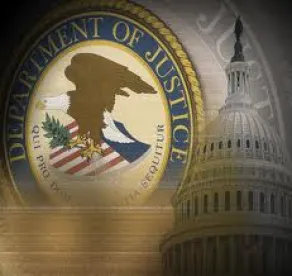In the 2022 Fiscal Year (FY 2022), the U.S. Department of Justice (DOJ) recovered only $776 million in False Claims Act (FCA) whistleblower cases in which it intervened, the lowest total since 2004. In contrast, FCA whistleblower cases where the DOJ did not intervene resulted in a record $1.1 billion in recoveries, according to statistics released by the DOJ on February 7.
“Simply stated, this is a disgrace. We have seen the DOJ drop the ball by failing to intervene in strong FCA cases,” said KKC founding partner Stephen M. Kohn. “These statistics back-up this troubling trend.”
Under the False Claims Act, whistleblowers with knowledge of government contracting fraud may file qui tam lawsuits on behalf of the U.S. government. The DOJ then has the option to intervene and take over the lawsuit. If the DOJ declines to intervene, a whistleblower may continue to pursue the lawsuit.
“A majority of whistleblowers cannot afford to proceed with qui tam suits without DOJ intervention,” added Kohn, who also serves as the Chairman of the Board of the National Whistleblower Center. “The DOJ’s continual failure to intervene in strong FCA cases allows fraudsters to walk away with millions in taxpayer dollars.”
“It is the first time in the history of the False Claims Act of 1986 that whistleblower recoveries in government declined cases exceeded the recoveries obtained by the government in intervened cases. And it wasn’t close,” said KKC founding partner David Colapinto. “But for the whistleblowers, who recovered over $1.1 billion compared to the $776 million obtained in government intervened cases, this would have been a disastrous year for the government’s most important anti-fraud program.”
“At the same time that whistleblowers are bringing in record recoveries, the DOJ has turned its back on them,” continued Kohn. “Instead of supporting whistleblowers, the DOJ is arguing in the Supreme Court to limit the right of whistleblowers to pursue their cases. On top of this, for over two years the DOJ has failed to implement the confidential reporting requirements mandated under the anti-money laundering whistleblower laws. The DOJ needs to fully support whistleblowers.”
“Last night, in the State of the Union speech, we heard President Biden emphasize the need to get tougher on fighting fraud against the government,” Colapinto further added. “Unfortunately, these disappointing numbers tell a different story. In reality, as reflected by the statistics over the last 5 or 6 years, the government is doing less to fight fraud and not supporting whistleblowers who bring important fraud cases.”
A case pending before the Supreme Court, United States, ex rel. Polansky v. Executive Health Resources, Inc., has immense implications for the future efficacy of the FCA. The case concerns the ability of the U.S. government to dismiss qui tam whistleblower suits after initially declining to intervene in them.
Furthermore, the bipartisan False Claims Amendment Act of 2021 remains pending before Congress. The bill, sponsored by Senator Chuck Grassley (R-IA) who helped lead the push in 1986 to modernize the FCA, offers a number of much-needed technical fixes to the law.
Geoff Schweller also contributed to this article.




 />i
/>i
